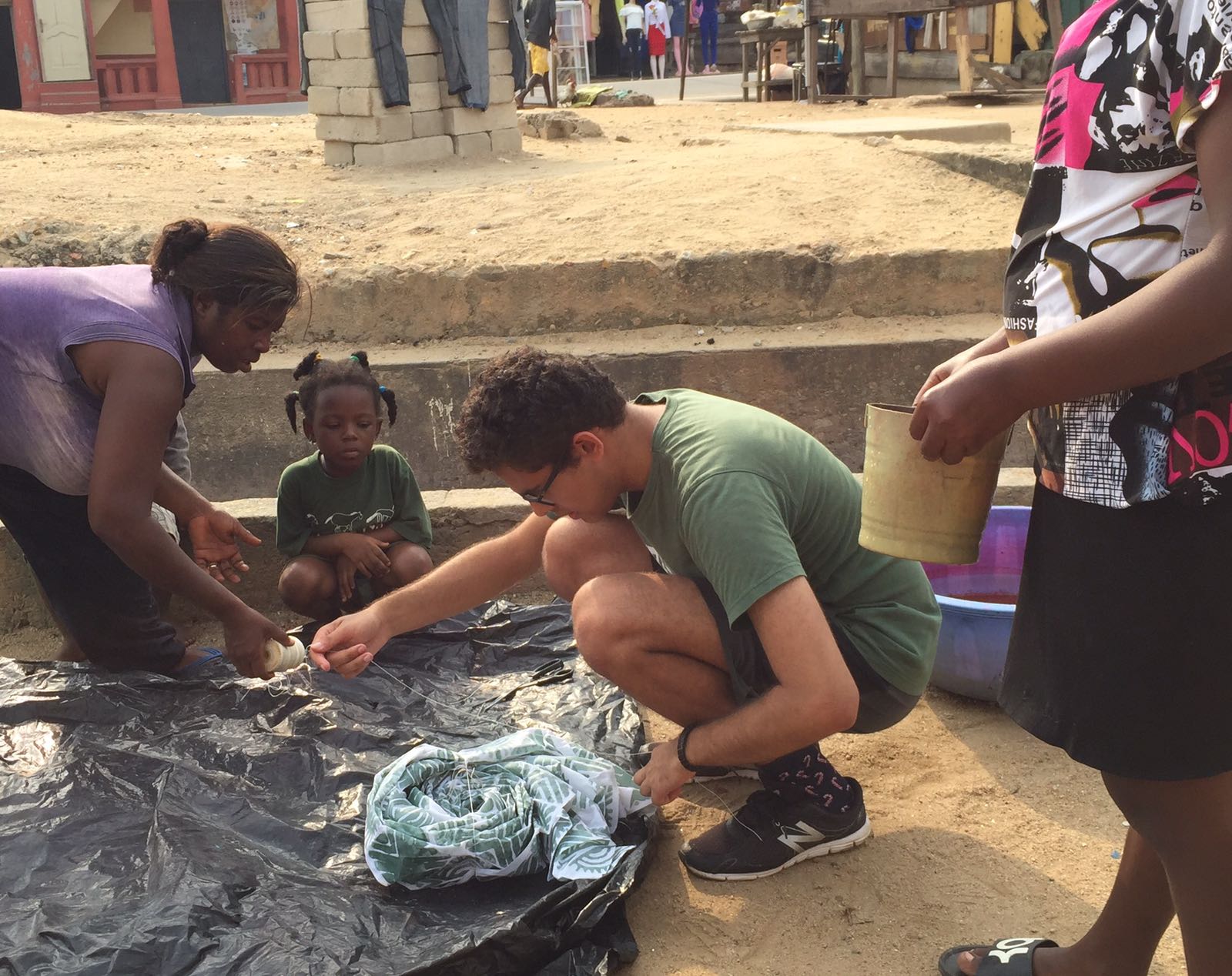Assessing Implementation and Practice of HIV/AIDS Workplace Policy in Ghana
Undergraduate Summer Research Grants
 This past summer I traveled to the capital of Ghana, Accra, where I conducted in-depth interviews to conduct an assessment regarding the impact and practice of HIV/AIDS workplace policy. Questions around which I formulated my interviews and conversations were “Did you feel there was an impact after implementation and dissemination of the policy?” and “How has the interaction and understanding of HIV/AIDS policy changed over time?” The goal was to gain a more in depth understanding and be able to formulate a capstone to share with NGOs who assisted me. And it is a goal I do believe I will accomplish by the end of the semester.
This past summer I traveled to the capital of Ghana, Accra, where I conducted in-depth interviews to conduct an assessment regarding the impact and practice of HIV/AIDS workplace policy. Questions around which I formulated my interviews and conversations were “Did you feel there was an impact after implementation and dissemination of the policy?” and “How has the interaction and understanding of HIV/AIDS policy changed over time?” The goal was to gain a more in depth understanding and be able to formulate a capstone to share with NGOs who assisted me. And it is a goal I do believe I will accomplish by the end of the semester.
The experience as a whole came with many challenges – one of which was connecting with people to interview. During my time in Ghana I did not work with a specific organization and as an independent researcher face difficulty in contacting potential interviewees. Out of my seven-week experience, the first three and a half weeks were spent calling, emailing, and speaking to connections through my host family to find employees and volunteers to speak with. I am open about this challenge because it was something that affected me emotionally and really caused me to worry about the future of my senior capstone. But while it was difficult, it was an experience from which to grow and improve methodology. I became increasingly proactive and (in comparison to the previous weeks) during the final four days of my research alone conducted ten interviews.
An additional challenge that I had thought about but was not actually prepared for until on the ground in Ghana was the strong awareness of being a Westerner. It is not uncommon to feel out of place sometimes here in the U.S. but while traveling around to conduct interviews or grab a taxi I was aware of my being a foreigner. This is definitely something that took time adjusting and something that I never quite adjusted to in fact. It never negatively affected my day to day being or overall fieldwork, but was an aspect of my time in Ghana that was challenging since it was quite unexpected and definitely very prevalent. I will point out thought that despite the awareness of being a Westerner, there was never a moment where I did not feel welcome in the country. In fact, Ghanaians are some of the friendliest people I have interacted with internationally. During every interaction and every interview, though nervous at first, I did not feel any resistance from the locals in opening up about experiences and sharing them with me. This transparency and willingness to speak about a sensitive subject such as HIV/AIDS definitely benefited my research and data collected.
The people I spoke to were employees and volunteers at various HIV/AIDS groups and NGOs. They ranged from field workers, to doctors, to directors at various organizations. In speaking to a variety of professionals, I was able to get a sense of how there may be an insufficient dissemination plan for workplace policy and how that might affect understanding of the policy within the country thereby reducing positive impact. The data collected from these in-depth interviews will lend itself to qualitative analysis since there was little, if no, numerical data received from the interviewees. One thing I am both excited and nervous to tackle is the actual formatting of the capstone. There was so much interesting information that I gained from interviews about the history and perception of HIV/AIDS in the community as well as facts about certain groups within the workforce that respond to HIV differently, but the challenge comes in making the capstone concise. It will be interesting to see how I am able to include subsections of content that I feel are important while keeping the flow of paper succinct and pertinent to workplace policy specifically.
As a whole, I believe the interviews and fieldwork was successful. With the data and information from interviews I hope to write a thorough capstone that sums up what I have come to understand. The goal is that my analysis of whether the systems in place are having an impact and whether the means through which the policies are disseminated are effective will be beneficial to the readers. I hope that in sending the capstone to the organizations that I spoke to will help these employees and officials create better channels for information sharing. I can say now that in the capstone mention will be made of gaps in communication between two key organizations that can easily be bridged once recognized. In the end, the capstone will hopefully start a conversation regarding HIV/AIDS discrimination in the workplace in Ghana and workplace policy since published research is lacking in that area.
As I continue to analyze my interviews and unpack the experience in Ghana mentally/emotionally, I cannot help but feel a sense of pride in myself. Proud that I was able to get interviews. Proud that I was able to carry myself independently in a foreign country and context. Proud that someone somewhere will maybe one day benefit from my research. And all of this would not have been possible without the support of Kellogg. It is still hard to grasp and wrap my mind around the fact that I spent two months in Ghana. It was an experience of a lifetime and I could not be more grateful.






